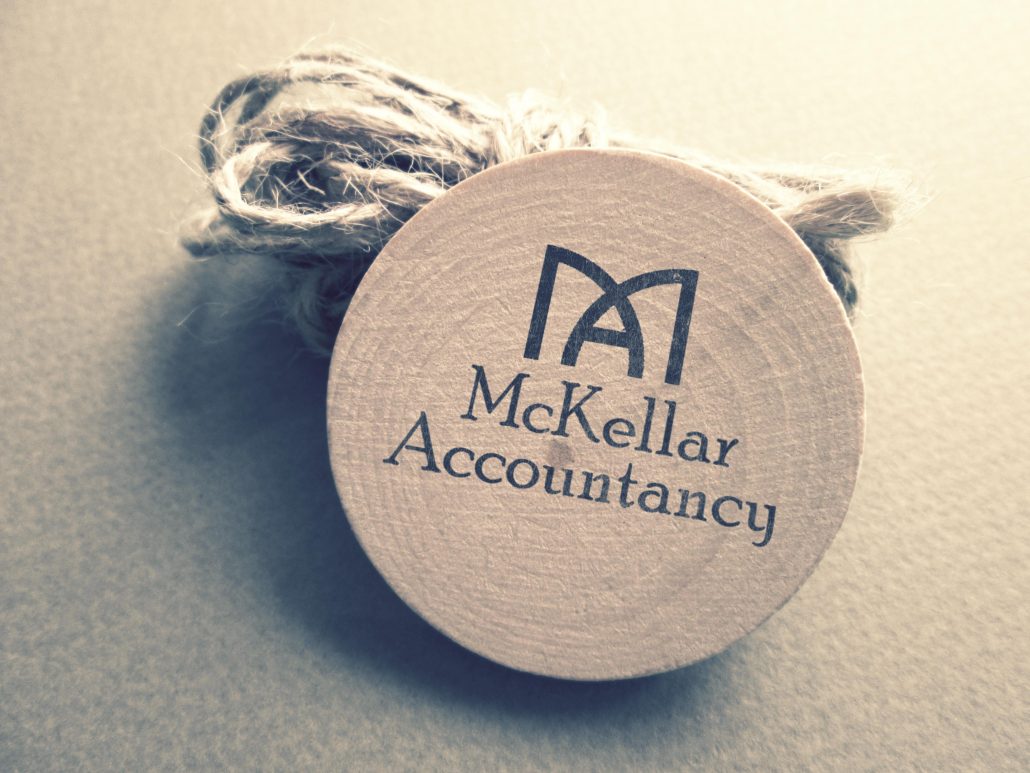[av_image src=’https://www.mckellaraccountancy.com/wp-content/uploads/2017/02/Vintage-Logo-Mock-Up-GB-1500×430.jpg’ attachment=’406′ attachment_size=’featured’ align=’center’ styling=” hover=” link=” target=” caption=” font_size=” appearance=” overlay_opacity=’0.4′ overlay_color=’#000000′ overlay_text_color=’#ffffff’ animation=’no-animation’][/av_image]
[av_heading heading=’McKellar Accountancy December eNews’ tag=’h3′ style=” size=” subheading_active=” subheading_size=’15’ padding=’10’ color=” custom_font=”][/av_heading]
[av_textblock size=” font_color=” color=”]
e-News – December 2019
In this month’s e-News we consider tax free gifts for employees, updated advisory fuel rates for company cars and tips on avoiding Self Assessment scams. We also report on the updated Check Employment Status for Tax tool and temporary pensions arrangements for some NHS staff. With guidance on cryptoassets, the latest HMRC Employer Bulletin and R&D statistics there is lots to update you on.
Article Index
- Making sure gifts to employees are tax-free
- Advisory fuel rates for company cars
- HMRC offers tips on avoiding Self Assessment tax scams
- Check employment status for tax tool update
- Temporary pensions tax arrangement for NHS staff
- HMRC issues guidance on cryptoassets
- Latest guidance for employers
- Research and Development spend
Making sure gifts to employees are tax-free
Some employers may wish to give a small gift to their employees. As long as the employer meets the relevant conditions, no tax charge will arise on the employee.
A tax exemption is available which should help employers ensure that the benefits provided are exempt and do not result in a reportable employee benefit in kind. In order for the benefit to be exempt it must satisfy the following conditions:
- the cost of providing the benefit does not exceed £50 per employee (or on average when gifts are made to multiple employees)
- the benefit is not cash or a cash voucher
- the employee is not entitled to the benefit as part of a contractual arrangement (including salary sacrifice)
- the benefit is not provided in recognition of particular services performed by the employee as part of their employment duties
- where the employer is a ‘close’ company and the benefit is provided to an individual who is a director, an office holder or a member of their household or their family, then the exemption is capped at a total cost of £300 in a tax year.
If any of these conditions are not met then the benefit will be taxed in the normal way subject to any other exemptions or allowable deductions.
No more than £50
One of the main conditions is that the cost of the benefit does not exceed £50. If the cost is above £50 the full amount is taxable, not just the excess over £50. The cost of providing the benefit to each employee and not the overall cost to the employer determines whether the benefit can be treated as a trivial benefit. So, a benefit costing up to £50 per employee whether provided to one or more employees can be treated as trivial. Where the individual cost for each employee cannot be established, an average could be used. HMRC examples consider various gifts including turkeys, bottles of wine and gift vouchers.
Further details on how the exemption works, including family member situations, are contained in the HMRC manual.
However if you are unsure please do get in touch before assuming the gift you are about to provide is covered by the exemption.
Internet link: HMRC manual
Advisory fuel rates for company cars
New company car advisory fuel rates have been published which took effect from 1 December 2019. The guidance states: ‘You can use the previous rates for up to one month from the date the new rates apply’. The rates only apply to employees using a company car.
The advisory fuel rates for journeys undertaken on or after 1 December 2019 are:
| Engine size | Petrol |
| 1400cc or less | 12p |
| 1401cc – 2000cc | 14p |
| Over 2000cc | 21p |
| Engine size | LPG |
| 1400cc or less | 8p |
| 1401cc – 2000cc | 9p |
| Over 2000cc | 14p |
| Engine size | Diesel |
| 1600cc or less | 9p |
| 1601cc – 2000cc | 11p |
| Over 2000cc | 14p |
HMRC guidance states that the rates only apply when you either:
- reimburse employees for business travel in their company cars
- require employees to repay the cost of fuel used for private travel
You must not use these rates in any other circumstances.
The Advisory Electricity Rate for fully electric cars is 4 pence per mile. Electricity is not a fuel for car fuel benefit purposes.
If you would like to discuss your car policy, please contact us.
Internet link: GOV.UK AFR
HMRC offers tips on avoiding Self Assessment tax scams
HMRC is giving information to taxpayers to help them avoid scams ahead of the Self Assessment deadline.
HMRC is warning millions of Self Assessment taxpayers to be aware of fraudsters in the run up to the 31 January deadline.
Over the last year, HMRC received almost 900,000 reports from the taxpayers about suspicious HMRC contact, in the form of phone calls, texts or emails. Of these more than 100,000 were phone scams and over 620,000 reports related to bogus tax rebates.
According to HMRC the most common techniques fraudsters use include phoning taxpayers offering a fake tax refund, or pretending to be HMRC by texting or emailing a link to a false page, where their bank details and money will be stolen. Fraudsters are also known to threaten victims with arrest or imprisonment if a bogus tax bill is not paid immediately.
HMRC’s Customer Protection team identify and close down scams but taxpayers should recognise the signs to avoid becoming victims. HMRC does not contact taxpayers asking for their PIN, password or bank details. Taxpayers are warned that they should never give out private information, reply to text messages, download attachments or click on links in texts or emails which they are not expecting.
Internet link: GOV.UK news
Check employment status for tax tool update
HMRC has issued an update to the Check employment status tool (CEST) in advance of the introduction of new tax rules proposed for individuals who provide their personal services via an ‘intermediary’ to a medium or large business. The tool is designed to give HMRC’s view of the status of contracts and has received criticism.
The new rules are expected to apply from 6 April 2020, similar rules were introduced in 2017 for public sector organisations receiving services from intermediaries, typically Personal Services Companies (PSC).
Please contact us for help and advice on whether you are caught by the new rules or should be applying the new rules to someone your business engages via a PSC.
Internet link: GOV.UK CEST
Temporary pensions tax arrangement for NHS staff
In a letter in November 2019, the Secretary of State for Health and Social Care, Matt Hancock, has agreed to a temporary commitment to make payments to certain clinical staff outside of the NHS pension schemes to restore the value of their pension benefits package. These rules apply if they have elected to use the scheme pays facility to settle an annual allowance tax charge arising from their pension saving in the NHS schemes in 2019/20.
Meanwhile, under a temporary measure the Scottish government is introducing, between 1 December 2019 and 31 March 2020, NHS staff in Scotland who can show they are likely to breach the pensions annual allowance for 2019/20 will be able to receive pay in lieu of employer pension contributions.
The announcements follow reports that senior NHS clinicians pension tax charges are making them retire early or change their working habits. The Department of Health and Social Care estimates that a third of consultants and GPs may be turning down extra shifts because of how the NHS Pension Scheme interacts with the wider pension tax rules.
Internet links: GOV.UK letters GOV.SCOT news
HMRC issues guidance on cryptoassets
HMRC has published guidance for people who hold cryptoassets, typically cryptocurrency or Bitcoin, explaining what taxes they may need to pay and what records they need to keep. HMRC has also published further information for businesses and companies about the tax treatment of cryptoasset transactions.
HMRC advises that these papers set out HMRC’s view of the appropriate tax treatment of cryptoassets, based on the law as it stands on the date of publication and that the tax policy in this area may develop as the sector develops.
Internet link: GOV.UK tax on cryptoassets
Latest guidance for employers
HMRC has issued the latest Employer Bulletin. This issue includes articles on a number of areas including:
- guidance for employers on reporting PAYE information in real time when payments are made early at Christmas
- electronic payment deadline falls on a weekend
- Ultra Low Emission Vehicle
- High Income Child Benefit Charge deadline 31 January
- Tax-Free Childcare payments
- update on termination payments: Post Employment Notice Pay for employees paid by equal monthly instalments
- workplace pensions – remember to keep paying in.
Contact us for help with payroll matters.
Internet link: HMRC Employer Bulletin
Research and Development spend
The Office for National Statistics (ONS) has revealed that UK businesses spent £25 billion on Research and Development (R&D) in 2018.
Data from the ONS showed that total R&D expenditure increased from £23.7 billion in 2017 to £25 billion in 2018.
The report showed:
- the aerospace industry saw the largest increase in R&D expenditure with a total spend of £210 million
- the UK telecoms sector also experienced fast growth in R&D spending, increasing by 25.4% in 2018 to £192 million.
According to the ONS, the government’s funding of R&D amounted to £1.7 billion in 2018, which accounted for 6.9% of all R&D expenditure. The data revealed that machinery, equipment and shipbuilding were the biggest beneficiaries from government funding.
Internet link: ONS reports
[/av_textblock]
[av_social_share title=’Share this entry’ style=” buttons=” share_facebook=” share_twitter=” share_pinterest=” share_gplus=” share_reddit=” share_linkedin=” share_tumblr=” share_vk=” share_mail=”][/av_social_share]







